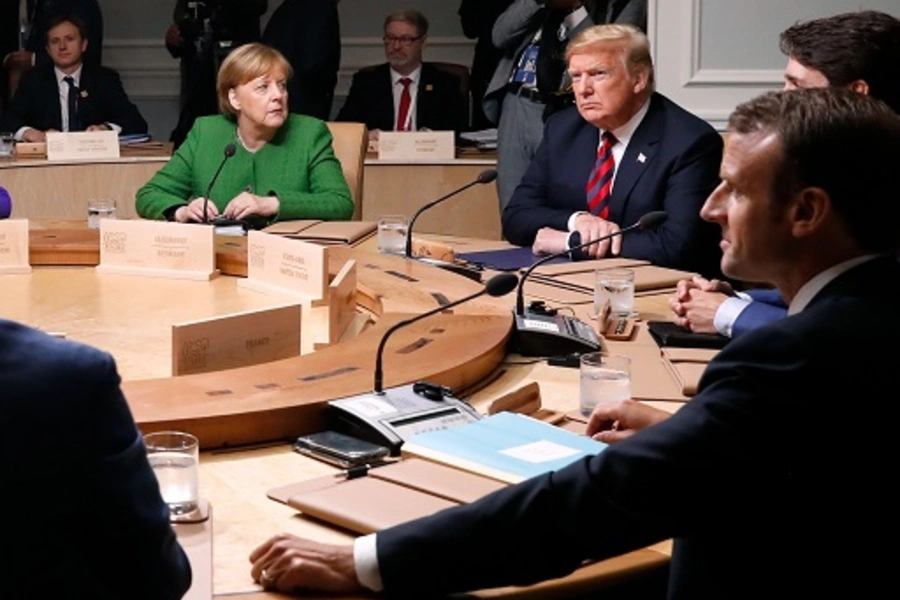The Committee to Save the World Order

On his last day in office President Barack Obama left a note on the Resolute desk in the Oval Office for his successor. The note offered congratulations and extolled democratic institutions and values. The note also highlighted the importance and indispensability of American global leadership. “It’s up to us, through action and example,” Obama wrote, “to sustain the international order that’s expanded steadily since the end of the Cold War, and upon which our own wealth and safety depend.”
It was heartfelt advice from the outgoing president. But twenty-one months later, it’s clearly not advice Donald Trump has followed. That should not be a surprise. Trump campaigned on the argument that U.S. global leadership wasn’t the solution to what ailed America but the cause. Since taking office, he has been good to his word. He has focused on beating and not leading friends and allies, believing that they free ride on America’s security guarantees and pick its pockets on trade deals. As Ivo Daalder and I argue in our forthcoming book, The Empty Throne: America’s Abdication of Global Leadership, Trump’s America First foreign policy represents a tectonic shift in America’s relations with the world, and one likely to leave the United States confronting a more dangerous and less prosperous future.
More on:
The question is, how should America’s friends and allies respond to a president motivated by the logic of competition and domination rather than the logic of cooperation and coordination? After all, they have as much to lose, if not more, if the world order the United States created more than seventy years ends up on history’s ash heap. Ivo and I tackle that question in “The Committee to Save the World Order: America’s Allies Must Step Up as America Steps Down,” an article that will appear in the November/December issue of Foreign Affairs. You don’t have to wait for that issue to hit the newsstand, though. Foreign Affairs posted the article online today. Here’s our argument in nutshell:
“Trump’s hostility toward the United States’ own geopolitical invention has shocked many of Washington’s friends and allies. Their early hopes that he might abandon his campaign rhetoric once in office and embrace a more traditional foreign policy have been dashed. As Trump has jettisoned old ways of doing business, allies have worked their way through the initial stages of grief: denial, anger, bargaining, and depression. In the typical progression, acceptance should come next.
But the story does not have to end that way. The major allies of the United States can leverage their collective economic and military might to save the liberal world order. France, Germany, Italy, the United Kingdom, and the EU in Europe; Australia, Japan, and South Korea in Asia; and Canada in North America are the obvious candidates to supply the leadership that the Trump administration will not. Together, they represent the largest economic power in the world, and their collective military capabilities are surpassed only by those of the United States. This “G-9” should have two imperatives: maintain the rules-based order in the hope that Trump’s successor will reclaim Washington’s global leadership role and lay the groundwork to make it politically possible for that to happen. This holding action will require every member of the G-9 to take on greater global responsibilities. They all are capable of doing so; they need only summon the will.”
I encourage you to read the entire piece and let me know what you think by tweeting me at @JamesMLindsay.
More on:
 Online Store
Online Store